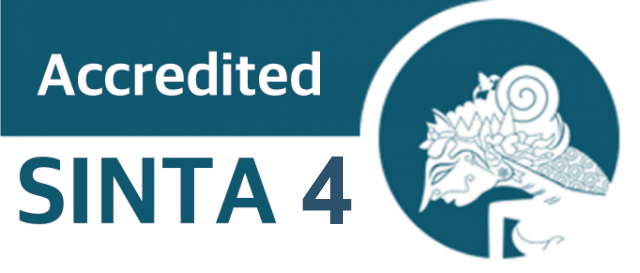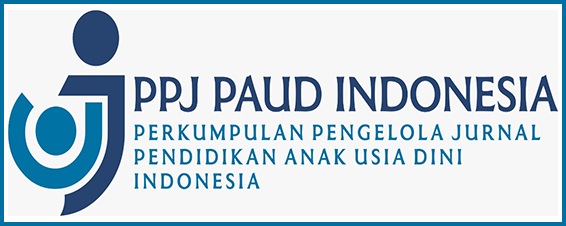Pengelolaan Komposter untuk Anak Usia Dini: Mengubah Kesadaran Lingkungan dan Pengurangan Sampah
DOI:
https://doi.org/10.21154/wisdom.v5i1.8438Keywords:
Compost Management, Early Childhood, Environmental Awareness, Waste Reduction, Environmental BehaviorAbstract
This study investigates the impact of composter management practices on the environmental awareness and behavior of young children about waste reduction. This research included observations, interviews, and the direct participation of children to identify the changes in their understanding of recycling organic waste into compost, which is beneficial for plants. The research findings indicate that children actively participate in substantial conversations regarding the composting process and recognize the vital role of organic waste management for the environment. This study emphasizes the importance of teachers in guiding children to identify and comprehend the distinctions between organic and inorganic waste by focusing on the process of managing composters. Children's active involvement in managing composters leads to behavioral changes such as enhanced awareness of the waste recycling process, commitment to environmental sustainability, and engagement in practical efforts to reduce landfill waste.References
Adinoto, Angelia Puspa Dewi. “Pembuatan Media Pembelajaran Interaktif Tentang Pengolahan Sampah Untuk Anak SD Kelas 1.” Jurnal Ilmiah Mahasiswa 4, no. 1 (2015): 1”“7.
Adnani, Kamila. METODOLOGI PENELITIAN KOMUNIKASI KUALITATIF DAN KUANTITATIF. Surakarta, 2021.
Agung, Anak Agung Putu, and Anik Yuesti. Metode-Penelitian-Bisnis-Kuantitatif-Dan-Kualitatif. CV. Noah Aletheia. Vol. 1, 2019.
Anggraeni, I., and B. Zaman. “The Identification of Eco-Literacy Practices in Early Childhood Education.” Early Childhood Education in the 21st Century, 2020, 172”“76. https://doi.org/10.1201/9780429434914-30.
Anggraeni, Ira. “Implementasi Best Practice Pembelajaran Ecoliteracy Melalui Pengelolaan Komposter Di PAUD.” Jurnal Pendidikan Raudhatul Athfal 6 (2023).
Arisona, Risma Dwi. “Pengelolaan Sampah 3R (Reduce, Reuse, Recycle) Pada Pembelajaran Ips Untuk Menumbuhkan Karakter Peduli Lingkungan 39-51.” Jurnal Pendidikan Islam 3 (2018): 39”“51.
Goleman, Daniel, Zenobia Barlow, and Lisa Bennett. “Forging New Norms in New Orleans: From Emotional to Ecological Intelligence.” Teacher Education Quarterly 37, no. 4 (2010): 87”“98. http://search.proquest.com/docview/791895299?accountid=14548%5Cnhttp://library.hku.hk:4551/resserv?genre=article&issn=0737-5328&title=Teacher+Education+Quarterly&volume=37&issue=4&date=2010-10-01&atitle=Forging+New+Norms+in+New+Orleans:+From+Emotional+to+.
Hasanah, Idaul, Husamah Husamah, Gina Harventy, and Novita Ratna Satiti. “Implementasi Sekolah Sedekah Sampah Untuk Mewujudkan Pengelolaan Sampah Berbasis Filantropi Di SMP Muhammadiyah Kota Batu.” International Journal of Community Service Learning 2, no. 4 (2018): 283”“90. https://doi.org/10.23887/ijcsl.v2i4.14364.
Johnson, Kelly. “Creative Connecting: Early Childhood Nature Journaling Sparks Wonder and Develops Ecological Literacy.” International Journal of Early Childhood Environmental Education 2, no. 1 (2014): 126”“39.
Juhriati, I. “The Best Practice of Ecoliteracy Based on Social Culture.” IOP Conference Series: Earth and Environmental Science, 2021. https://doi.org/10.1088/1755-1315/802/1/012012.
Kili K’odhiambo, Atieno. “Analysis of Ecopedagogy: Prescription to Seal Lacuna in Environmental Education Curriculum for Young Learners in Kenya.” International Education & Research Journal 3, no. 4 (2017): 70”“74.
Maulidah, N. “Creative Play and Learning in Natural Environment to Develop Creative-Ecoliteracy in Elementary School Students.” Journal of Physics: Conference Series, 2021. https://doi.org/10.1088/1742-6596/1764/1/012112.
Maya Fadlilah, S.Kep., Ns., M.Kes. Metodologi Penelitian. News.Ge, 20189.
Norat, MarÃa de los Ãngeles Vilches, Alfonso Fernández HerrerÃa, and Francisco Miguel MartÃnez RodrÃguez. “Ecopedagogy: A Movement between Critical Dialogue and Complexity: Proposal for a Categories System.” Journal of Education for Sustainable Development 10, no. 1 (2016): 178”“95. https://doi.org/10.1177/0973408215625552.
Palupi, Warananingtyas, Hesty Marlyana Permatasari, and Muhammad Munif Syamsuddin. “Waste Management Keluarga Pada Penanaman Karakter Peduli Lingkungan Anak Usia Dini.” Jurnal Warna : Pendidikan Dan Pembelajaran Anak Usia Dini 5, no. 2 (2020): 85”“99. https://doi.org/10.24903/jw.v5i2.527.
Prayogo, Wisnu, Irma Novrianty, Ani Purwanti, Rachmat Mulyana, Nahesson Hotmarama Panjaitan, Laili Fitria, Dion Awfa, et al. “Pelatihan Pengolahan Sampah Dengan Metode Takakura Dan Pembuatan Stringbag Bagi Kelompok Anak Usia Dini Di Desa Bukit Lawang, Sumatera Utara.” International Journal of Community Service Learning 6, no. 3 (2022): 381”“95. https://doi.org/10.23887/ijcsl.v6i3.50044.
Purnami, Wahyuni. “Pengelolaan Sampah Di Lingkungan Sekolah Untuk Meningkatkan Kesadaran Ekologi Siswa.” INKUIRI: Jurnal Pendidikan IPA 9, no. 2 (2021): 119. https://doi.org/10.20961/inkuiri.v9i2.50083.
Ratcliffe, Michelle M., Kathleen A. Merrigan, Beatrice L. Rogers, and Jeanne P. Goldberg. “The Effects of School Garden Experiences on Middle School-Aged Students’ Knowledge, Attitudes, and Behaviors Associated With Vegetable Consumption.” Health Promotion Practice 12, no. 1 (2011): 36”“43. https://doi.org/10.1177/1524839909349182.
Reynolds, Julie A., and Margaret D. Lowman. “Promoting Ecoliteracy through Research Service-Learning and Citizen Science.” Frontiers in Ecology and the Environment, 2013. https://doi.org/10.1890/1540-9295-11.10.565.
Schaub, S. M., and J. J. Leonard. “Composting: An Alternative Waste Management Option for Food Processing Industries.” Trends in Food Science and Technology 7, no. 8 (1996): 263”“68. https://doi.org/10.1016/0924-2244(96)10029-7.
Siregar, Masyunita, Sri Martini Meilanie, and Agung Purwanto. “Pengenalan Ecoliteracy Pada Anak Usia Dini Melalui Metode Bercerita.” Jurnal Obsesi : Jurnal Pendidikan Anak Usia Dini 5, no. 1 (2020): 719. https://doi.org/10.31004/obsesi.v5i1.700.
Stone, Michael K. “A Schooling for Sustainability Framework.” Teacher Education Quarterly 37, no. 4 (2010): 33”“46. http://login.ezproxy1.lib.asu.edu/login?url=https://search.proquest.com/docview/822505314?accountid=4485.
Sugiyono, and Puji Lestari. “Buku Metode Penelitian Komunikasi.Pdf,” 2021.
Sulistyanto, Hernawan, Iqna Maulidya Syafira, Amalia Quratul Isnaini, Fitroni Hadi Prasetyo, Wafafi Qolby, Esti Pramita, Retno Aruming Tyas, Indhityas Kurnianing Fauziah, Farid Muhammad, and Rifki Khusain. “Pembiasaan Pengelolaan Sampah Sebagai Strategi Pendidikan Karakter Peduli Lingkungan Bagi Siswa MI Muhammadiyah Cekel, Karanganyar.” Buletin KKN Pendidikan 1, no. 2 (2020): 42”“49. https://doi.org/10.23917/bkkndik.v1i2.10768.
Waluyo, Mohammad Rachman, Fajar Rahayu, and Akalily Mardiyah. “Pemberdayaan Masyarakat Tentang Pengelolaan Sampah Dengan Teknik Komposter Dan Pemanfaatan Pekarangan Sekolah Untuk Tanaman Sayur Sebagai Gerakan Masyarakat Hidup Sehat.” International Journal of Community Service Learning 3, no. 3 (2019): 122. https://doi.org/10.23887/ijcsl.v3i3.20868.







